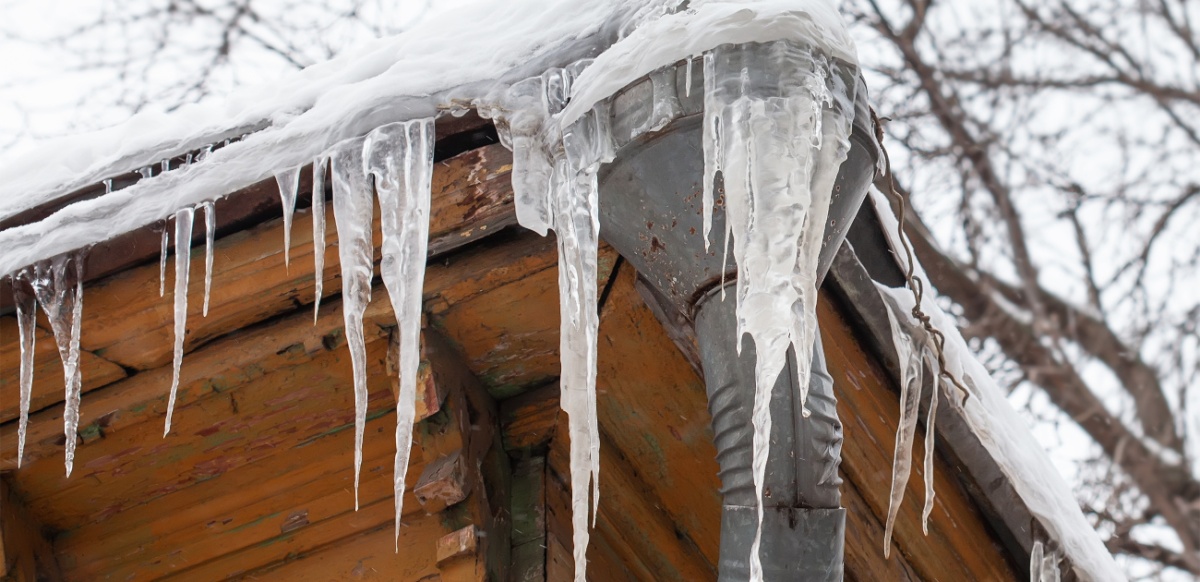Crucial Tips for Preventing Frozen Plumbing in Cold Weather Seasons
Crucial Tips for Preventing Frozen Plumbing in Cold Weather Seasons
Blog Article
This great article listed below pertaining to 6 Ways to Prevent Frozen Pipes is exceedingly intriguing. Don't miss it.

Winter can damage your plumbing, specifically by freezing pipelines. Here's just how to prevent it from occurring and what to do if it does.
Intro
As temperatures decline, the threat of frozen pipelines boosts, possibly bring about pricey repair services and water damages. Comprehending how to prevent icy pipes is vital for homeowners in cold environments.
Prevention Tips
Shielding at risk pipelines
Cover pipes in insulation sleeves or use warm tape to secure them from freezing temperatures. Concentrate on pipes in unheated or outside locations of the home.
Home heating methods
Keep interior areas adequately heated, particularly areas with pipes. Open up cabinet doors to enable cozy air to circulate around pipes under sinks.
Just how to determine icy pipelines
Search for decreased water flow from taps, uncommon odors or sounds from pipelines, and visible frost on revealed pipes.
Long-Term Solutions
Architectural adjustments
Think about rerouting pipelines far from exterior walls or unheated areas. Add extra insulation to attic rooms, basements, and crawl spaces.
Updating insulation
Invest in high-quality insulation for pipelines, attic rooms, and wall surfaces. Proper insulation aids preserve regular temperatures and decreases the risk of icy pipes.
Protecting Outside Pipes
Yard pipes and outdoor taps
Detach and drain garden hoses before winter season. Mount frost-proof faucets or cover outside faucets with protected caps.
Comprehending Icy Pipes
What creates pipes to freeze?
Pipes freeze when revealed to temperature levels listed below 32 ° F (0 ° C) for expanded periods. As water inside the pipelines ices up, it increases, taxing the pipe wall surfaces and potentially causing them to rupture.
Threats and damages
Icy pipelines can cause supply of water disruptions, residential property damage, and pricey repairs. Ruptured pipes can flood homes and create substantial architectural damage.
Indications of Frozen Pipeline
Determining icy pipes early can stop them from bursting.
What to Do If Your Pipes Freeze
Immediate actions to take
If you suspect frozen pipelines, maintain taps open to eliminate pressure as the ice melts. Use a hairdryer or towels soaked in hot water to thaw pipelines slowly.
Verdict
Avoiding frozen pipelines calls for aggressive procedures and fast feedbacks. By recognizing the reasons, indicators, and safety nets, house owners can shield their plumbing throughout winter.
Helpful Tips to Prevent Frozen Pipes this Winter
UNDERSTANDING THE BASICS: WHY PIPES FREEZE AND WHY IT’S A PROBLEM
Water freezing inside pipes is common during the winter months, but understanding why pipes freeze, and the potential problems it can cause is crucial in preventing such incidents. This section will delve into the basics of why pipes freeze and the associated problems that may arise.
THE SCIENCE BEHIND FROZEN PIPES
When water reaches freezing temperatures, it undergoes a physical transformation and solidifies into ice. This expansion of water as it freezes is the primary reason pipes can burst. As the water inside the pipe freezes, it expands, creating immense pressure on the walls. If the pressure becomes too great, the pipe can crack or rupture, leading to leaks and water damage.
FACTORS THAT CONTRIBUTE TO PIPE FREEZING
Low Temperatures: Extremely cold weather, especially below freezing, increases the risk of pipes freezing. Uninsulated or Poorly Insulated Pipes: Pipes located in unheated areas, such as basements, crawl spaces, or attics, are more prone to freezing. Insufficient insulation or lack of insulation altogether exacerbates the problem. Exterior Wall Exposure: Pipes running along exterior walls are susceptible to freezing as they encounter colder temperatures outside. Lack of Heating or Temperature Regulation: Inadequate heating or inconsistent temperature control in your home can contribute to frozen pipes. PROBLEMS CAUSED BY FROZEN PIPES
- Pipe Bursting: As mentioned earlier, the expansion of water as it freezes can cause pipes to burst, resulting in significant water damage.
- Water Damage: When pipes burst, it can lead to flooding and water damage to your property, including walls, ceilings, flooring, and personal belongings.
- Structural Damage: Prolonged exposure to water from burst pipes can compromise the structural integrity of your home, leading to costly repairs.
- Mold and Mildew Growth: Excess moisture from water damage can create a favorable environment for mold and mildew growth, posing health risks to occupants.
- Disrupted Water Supply: Frozen pipes can also result in a complete or partial loss of water supply until the issue is resolved.
WHY CERTAIN PIPES ARE MORE PRONE TO FREEZING
- Location: Pipes located in unheated or poorly insulated areas, such as basements, crawl spaces, attics, or exterior walls, are at higher risk of freezing.
- Exterior Pipes: Outdoor pipes, such as those used for irrigation or exposed plumbing, are particularly vulnerable to freezing as they are directly exposed to the elements.
- Supply Lines: Pipes that carry water from the main water supply into your home, including the main water line, are critical to protect as freezing in these lines can affect your entire plumbing system.
- Underground Pipes: Pipes buried underground, such as those connected to sprinkler systems or outdoor faucets, can be susceptible to freezing if not properly insulated.
https://busybusy.com/blog/helpful-tips-to-prevent-frozen-pipes-this-winter/

We are very eager about Helpful Tips to Prevent Frozen Pipes this Winter and I hope you enjoyed reading the new blog posting. Enjoyed reading our write up? Please quickly share it. Help others discover it. I enjoy reading our article about Winter Plumbing Precautions: Preventing Frozen Pipes.
Get Started Report this page